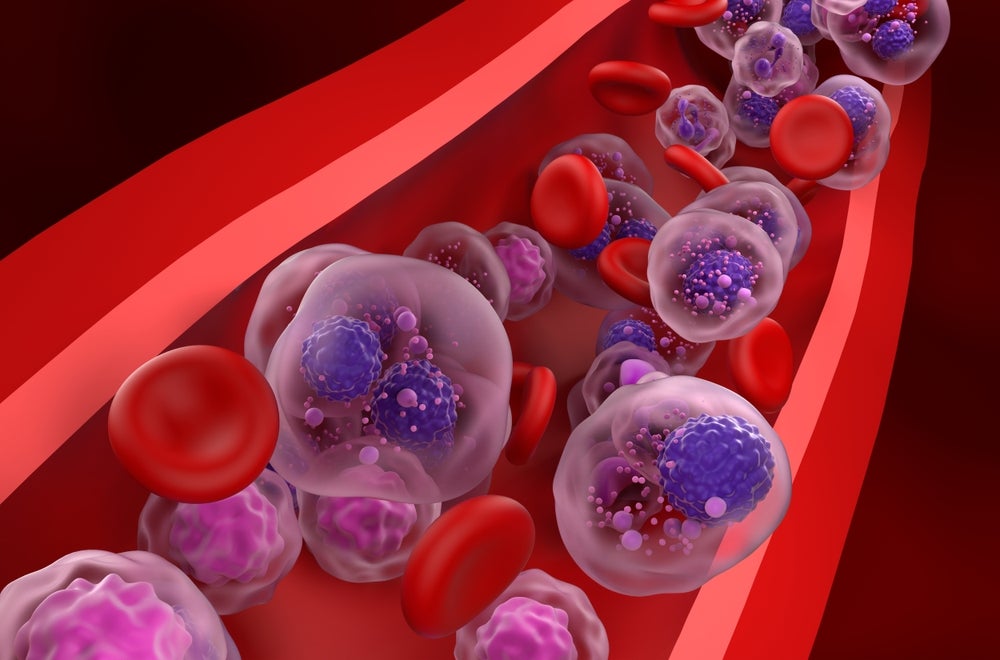At the 2025 Congress of the European Hematology Association (EHA 2025), held from 12 June to 15 June in Milan, Italy, the preliminary results from the global, multicentre, open-label, multi-cohort Phase Ib LINKER-MM2 clinical trial (NCT05137054) were presented on the penultimate day. This trial evaluated the safety and efficacy of the combination of Regeneron’s Lynozyfic (linvoseltamab), a B-cell maturation antigenxCD3 bispecific T-cell engager (BiTE), and Amgen’s Kyprolis (carfilzomib), a potent second-generation proteasome inhibitor, for patients with relapsed or refractory (R/R) multiple myeloma (MM).
MM is the third most common blood malignancy globally. It accounts for 2% of all diagnoses and 1% of all cancer deaths worldwide. The indication has seen significant clinical developments since 2023 with the recent approval of bi-specific T-cell engagers (BiTEs) such as Johnson & Johnson’s (J&J’s) Tecvayli (teclistamab) and Pfizer’s Elrexfio (elranatamab). According to GlobalData’s Multiple Myeloma: Epidemiology Forecast to 2032 report, the number of diagnosed prevalent cases of MM in the eight major markets (8MM: China, France, Germany, Italy, Japan, Spain, the UK and the US) is projected to increase from 328,151 in 2025 to 352,348 by 2032 at an annual growth rate of 1.12%.
In the LINKER-MM2 trial, 317 patients with R/R MM who had progressed after at least three previous therapies, or at least two if previously treated with a T-cell engager or double-class refractory, were enrolled across 10 treatment cohorts. In the Lynozyfic plus Kyprolis cohort, 23 patients received three different dose levels. For the primary endpoint of dose-limiting toxicities (DLT), one patient (16.7%) experienced a DLT at the 100 mg dose level of Lynozyfic. One patient experienced Grade 4 thrombocytopenia, and two patients died during the study. Regarding treatment-emergent adverse events (TEAEs), one patient experienced Grade 1 immune effector cell-associated neurotoxicity syndrome, five patients (22%) experienced cardiac TEAEs, and two patients experienced a TEAE of Grade 3 or higher. At a median follow-up of 14.8 months, the objective response rate was 90%, progression-free survival was 83% at 12 months, and duration of response was 87% at 12 months. 71% (5 out of 7) patients had minimal residual disease negative. The study investigator stated that these encouraging results support further investigation of this combination in a registrational, randomised Phase III clinical trial, which is currently in the process of planning.
Encouraging results support further investigation
After the US Food and Drug Administration (FDA) rejected Lynozyfic for MM due to issues at a third-party manufacturer, the company received conditional marketing approval from the European Commission to treat adult patients with R/R MM who have received at least three prior therapies, including a proteasome inhibitor, an immunomodulatory agent and an anti-CD38 monoclonal antibody, and have demonstrated disease progression on their most recent therapy. Regeneron has re-filed for FDA approval of Lynozyfic, with a decision expected in July 2025, positioning it as a potential competitor to Tecvayli and Elrexfio.
In 2024, Tecvayli and Elrexfio recorded sales of $549 million and $133 million, respectively. These two approved drugs, Tecvayli (studied in MAJESTEC-7 for first-line and MAJESTEC-4 for maintenance) and Elrexfio (studied in MAGNETISMM-6 for first-line and MAGNETISMM-7 for maintenance), are being evaluated in several Phase III clinical studies in early-line and maintenance settings. J&J and Pfizer are committed to expanding the commercial potential of these key oncology assets in MM. Amid this competition, Regeneron is also targeting earlier lines of therapy in MM, including the Phase III LINKER-MM3 clinical trial for patients in the second to fourth lines of therapy and two Phase II clinical trials, IMMUNOPLANT and LINKER-MM4, in the first-line setting. AbbVie’s etentamig is also entering the competitive landscape, with one Phase III clinical trial, CERVINO, underway in the R/R MM space.
The BiTE market is increasingly crowded
Meanwhile, in May 2024, Bristol Myers Squibb withdrew its Phase III ALUMMINATE trial for alnuctamab in R/R MM, stating that “business objectives have changed”. While this may benefit Regeneron by removing a competitor, it could also signal the growing challenges faced by new entrants in the increasingly crowded BiTE market. According to GlobalData’s analyst consensus forecast, Lynozyfic’s global sales are projected to reach $707 million by 2031, compared to more than $4.4 billion for Tecvayli, more than $1 billion for Elrexfio, and $707 million for etentamig in the same year.

US Tariffs are shifting - will you react or anticipate?
Don’t let policy changes catch you off guard. Stay proactive with real-time data and expert analysis.
By GlobalData




